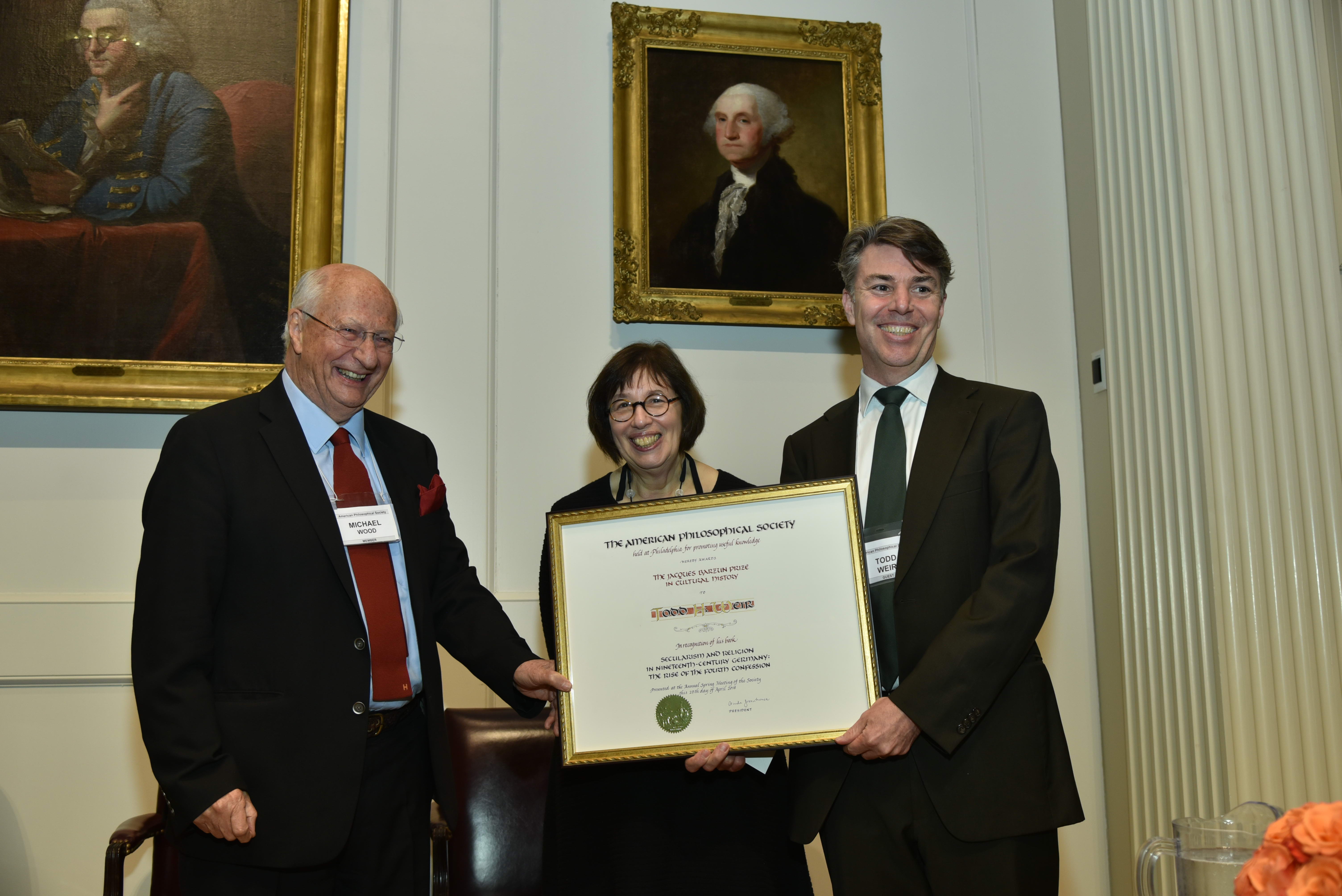2016 Karl Spencer Lashley Award
2016 Autumn General Meeting
Charles G. Gross
The American Philosophical Society is pleased to announce the recipient of the 2016 Karl Spencer Lashley Award is Charles G. Gross “in recognition of his pioneering studies of the neurophysiology of higher visual functions and the neural basis of face recognition and object perception.” The award will be presented to Dr. Gross on November 11, 2016, at the Society’s annual Autumn General Meeting.
Charles Gross pioneered the neuroscience of higher level vision. His seminal work on the inferotemporal cortex of nonhuman primates described neurons that are activated by complex stimuli such as faces, hands, and multicolored objects. His discoveries identified inferotemporal cortex as the highest-level area dedicated to object vision.
Dr. Gross is Professor Emeritus in the Department of Psychology and Neuroscience Institute at Princeton University. He received an A.B in biology at Princeton University and a Ph.D. in psychology at the University of Cambridge. He was a faculty member at Massachusetts Institute of Technology and Harvard University before joining the Princeton faculty in 1970. He is a member of the Brazilian Academy of Science, American Academy of Arts & Sciences, and the National Academy of Sciences.
The Karl Spencer Lashley Award was established in 1957 by a gift from Dr. Lashley, a member of the Society and a distinguished neuroscientist and neuropsychologist. His entire scientific life was spent in the study of behavior and its neural basis. Dr. Lashley’s famous experiments on the brain mechanisms of learning, memory and intelligence helped inaugurate the modern era of integrative neuroscience, and the Lashley Award recognizes innovative work that continues exploration in the field.
The members of the selection committee are Larry R. Squire (chair), Distinguished Professor of Psychiatry, Neurosciences, and Psychology, UCSD School of Medicine, Research Career Scientist, VA Medical Center, San Diego; John Dowling, Gordon and Llura Gund Professor of Neurosciences, Harvard University; John G. Hildebrand, Regents Professor of Neuroscience, University of Arizona, Foreign Secretary, National Academy of Sciences; Edvard Moser, Professor of Neuroscience, Director, Kavli Institute for Systems Neuroscience, Norwegian University of Science and Technology; and William T. Newsome III, Professor of Neurobiology, Stanford University School of Medicine, Investigator, Howard Hughes Medical Institute.

